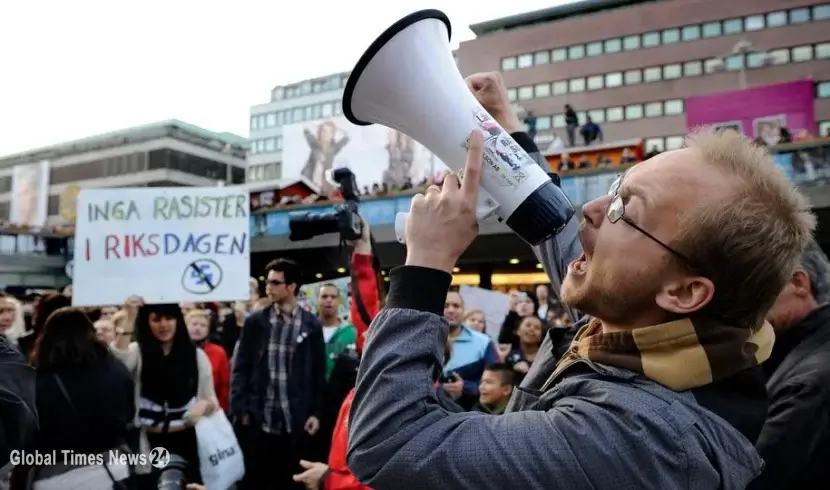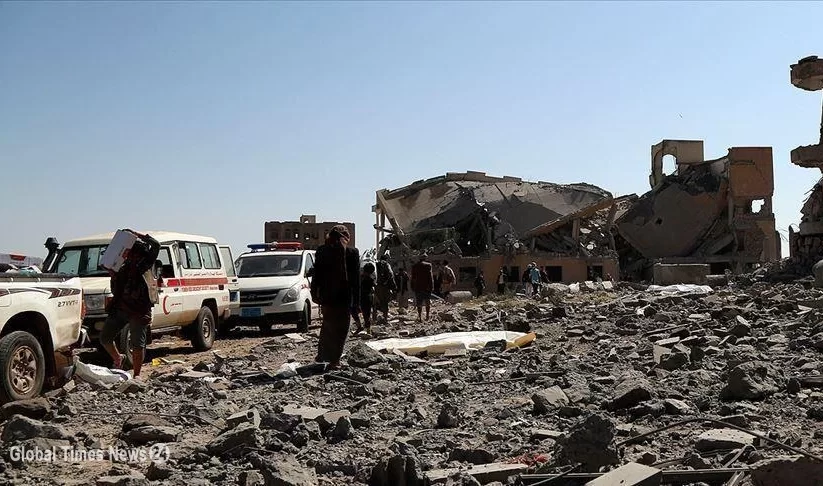At least 1,100 civilians have been evacuated in Ukraine in the last 24 hours, the country’s deputy prime minister said Sunday.
Iryna Vereshchuk, who is also minister for reintegration of the temporarily occupied territories, said in her daily briefing published on Instagram that civilians have been evacuated to safe areas through two humanitarian corridors.
Noting that they will continue to evacuate civilians from the besieged city of Mariupol, Vereshchuk said evacuations from the northeastern Sumy region will start on Monday.
Chernobyl nuclear power plant
Vereshchuk also announced that all Ukrainian staff of the country's Chernobyl nuclear power plant who have been working at the plant for more than 600 hours handed over their duties to 59 people, including six women, who agreed to take over their tasks. The plant has been under the control of Russian soldiers for more than a month.
Ukraine lost control of the Chernobyl nuclear power plant after a fierce battle with Russian forces, Ukraine’s presidential adviser Mykhailo Podolyak said on Feb. 24, the first day of the Russia-Ukraine war.
On Feb. 25, the State Inspectorate for Nuclear Regulation of Ukraine (SINR) reported that "excessive levels of radiation" had been detected in Chernobyl after Russian forces took control of the city, but Russian officials have denied any increase in levels.
The Russia-Ukraine war, which started on Feb. 24, has been met with international outrage, with the European Union, US and UK, among others, implementing tough financial sanctions on Moscow.
"In the context of nuclear security, the irresponsible and unprofessional actions of the Russian military pose a very serious threat not only to Ukraine but also to hundreds of millions of Europeans. Therefore, we demand that the UN Security Council take immediate measures to demilitarize the exclusion zone of the Chernobyl Nuclear Power Plant and establish a special UN mission to eliminate the risk of recurrence of the Chernobyl nuclear disaster as a result of actions by the Russian occupation forces," she said.
Vereshchuk noted that the Russian troops continued to militarize the exclusion zone, adding there was a great risk of damaging the confinement structures built over the nuclear power plant’s power unit No. 4 after its explosion in 1986.
She underlined that such damage would inevitably lead to a significant amount of radioactive dust being discharged into the atmosphere, resulting in the contamination of Ukraine and other European countries.
"The occupiers ignore these threats and continue to transport and store large quantities of ammunition in the immediate vicinity of the nuclear power plant. Dozens of tons of rockets, artillery shells and mortar ammunition are transported daily by the Russian occupiers through the town of Prypyat a few hundred meters of the nuclear power plant’s confinement. Ammunition is also stored in the town of Chornobyl, near the town of Prypyat, not far away from the nuclear power plant. Hundreds of tons of ammunition are kept in the town of Chernobyl," she said.
Vereshchuk also warned that big fires had broken out in the exclusion zone, which could lead to serious consequences.
"However, today it is impossible to control and extinguish fires in full due to the capture of the exclusion zone by the occupying forces of Russia. As a result of fires, radionuclides are released into the atmosphere. They can be carried by wind over long distances, which threatens radiation to Ukraine and other European countries," she said.
In 1986, an accident, known as the world's worst nuclear disaster, occurred at the fourth reactor in the Chernobyl nuclear power plant. It is located 16 kilometers (10 miles) from the city of Prypyat, which was built in the 1970s for workers at the plant.
Since then, the area has been largely uninhabited.
News ID : 428
 Abu Aqla's killing, suppression of another voice reflecting the oppression of the Palestinians
Human Rights / Opinion
Abu Aqla's killing, suppression of another voice reflecting the oppression of the Palestinians
Human Rights / Opinion
 Swedish government fails to protect Muslims, Jews
Human Rights / Breaking News
Swedish government fails to protect Muslims, Jews
Human Rights / Breaking News
 UN ‘deeply concerned’ by escalating conflict in Yemen after new airstrikes
Human Rights
UN ‘deeply concerned’ by escalating conflict in Yemen after new airstrikes
Human Rights
 Terrifying details of US-sponsored plot to kill Patrice Lumumba
Human Rights
Terrifying details of US-sponsored plot to kill Patrice Lumumba
Human Rights
 Gaza Mourns Another Loss as Journalist Succumbs to Injuries
Human Rights / Breaking News
Gaza Mourns Another Loss as Journalist Succumbs to Injuries
Human Rights / Breaking News